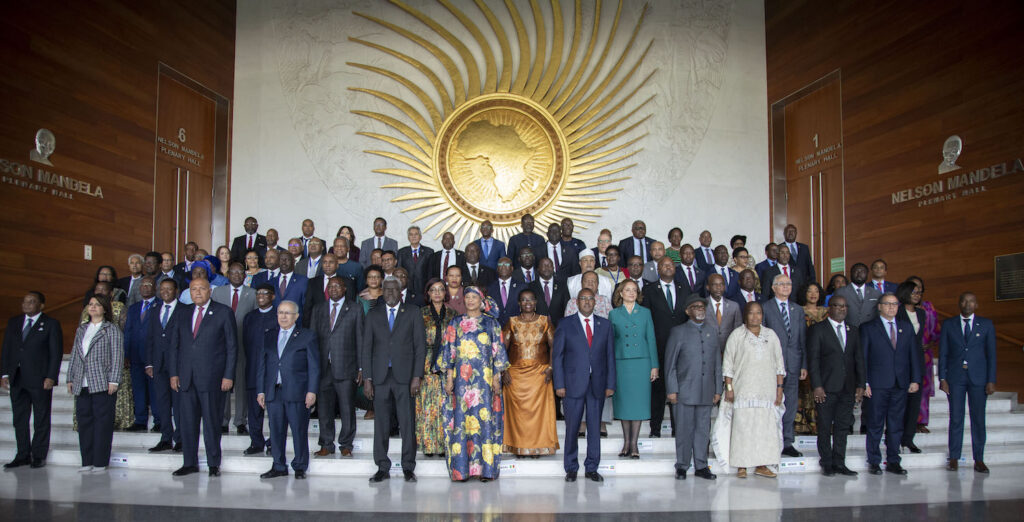African leaders are meeting on Saturday and Sunday for the annual African Union (AU) summit with the aim of speeding up the rollout of the African Continental Free Trade Area (ACFTA), Belga News Agency reports.
For many years, the continent's leaders have been discussing the implementation of the ACFTA, which is to bring together 1.3 billion people and thus become the world's largest market with a combined GDP of $3.4 trillion, according to the UN. The implementation of the flagship project has been slowed down following the global repercussions of Covid-19, the war in Ukraine and the persistence of armed insurgencies.
The 36th summit, due to be held at the AU's headquarters in Addis Ababa, will focus on "accelerating" the ACFTA. Initially, the deal was to be effective from 1 July 2020. But the closure of most borders due to the Covid-19 pandemic pushed back the timetable.
18 million jobs
Presently, intra-African trade represents only 15% of the continent's total trade.
According to its promoters, the ACFTA should promote trade within the continent and attract investors. According to the World Bank, by 2035, the agreement would create 18 million additional jobs and "could help lift up to 50 million people out of extreme poverty".
"There is a clear political will (for the free trade area) but it will take a long time to set up," Paul-Simon Handy, director of the Institute for Security Studies' office in Addis Ababa, told AFP.
Inter-continental differences
"There are countries that are a bit hesitant on certain points, especially on the protocol for the free movement of people and goods. Some African countries fear that opening up the borders will lead to an influx of people they cannot control," said Dorine Nininahazwe, director of the NGO ONE for East Africa, also mentioning protectionism issues.
All AU countries except Eritrea have signed up for the agreement, but discussions are stalling over the timing of tariff reductions, especially for the least developed countries.
This summit "will be held at a particularly delicate time for the continent", says the International Crisis Group (ICG). "The invasion of Ukraine and international sanctions have shaken African economies and plunged many of them into serious difficulties," the ICG said.
Additionally, the continent is still the scene of armed clashes, notably in the eastern Democratic Republic of Congo (DRC) and in the Lake Chad Basin. One of the world's deadliest conflicts, the war in Tigray (northern Ethiopia) – which, according to the AU, caused several hundred thousand deaths – ended last November with the signing of a peace agreement under the aegis of the African Union.
Related News
- Africa Food Summit: ‘It is time for Africa’s food sovereignty and resilience’
- Tigray at two years: The world's deadliest war
- South Africa's neutral stance criticised after joint Chinese-Russian military announcement
However, the fruit of the peace agreement are yet to show, with Tigrayans still cut off from power and aid trickling in slower than needs are rising – prompting criticism toward the summit being hosted in Ethiopia.
Mali, Burkina Faso and Guinea, three countries currently ruled by military leaders following coups, asked on 10 February to have their suspension from the AU lifted. But "reinstating these juntas into the AU would be a total renunciation," Handy said.
At least 35 presidents and four prime ministers will attend the summit, according to the Ethiopian government.

